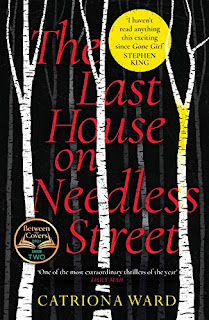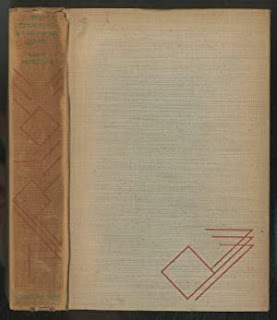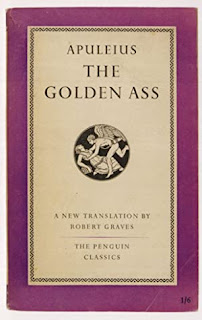What’s needed for a great holiday, or even a day off in the sun?
- Parasol — check
- Sunglasses — Check
- Chilled drink — check.
- Sunlounger — check
- Poolside. patio or beach — if you’re lucky
- Book — absolute essential.
I love the sun, but I’m no poolside babe; my absolute favourites also include a sunny woodland glade, a the corner of a field, an isolated cove where the seals sing, a clifftop bench or possibly a street café in town, where you might get interrupted by passing friends.
Mind you, living in Wales, my check list for a great afternoon’s reading usually includes warm slippers and a comfy fireside chair, even in summer!
While you’re working out where your favourite midsummer reading spot is, let me pass on my recommendations for some really varied summer reading.
One way or another, I’ve been getting through a lot of very eclectic novels lately, and I’d love to share them with you. Some would make very good airport reads, some need at least a weekend on a beach and some may require the full length of a road trip, Absorbing, puzzling, thrilling, funny, even shocking, these are my midsummer reads;
One for the Beach:
The Last House on Needless Street by Catriona Ward.Sometimes it’s hard to concentrate on your book on a beach. It gets damp from the last swim and greasy from tapas. Get up to play ball, and you can lose it in the sand. So what you need is something so gripping, so beguiling, so terrifying and so demanding that you never put it down.
Ward has written a cracker of a psychological thriller here. In her long Afterward to the novel, she opens with ‘if you haven’t finished The Last House of Needless Street yet, please don’t read on — what follows is one long spoiler.
This is because the mysteries that are set up in the first third of the novel will keep you guessing through the whole of it, even while you turn the pages in trepidation and fear for the lives of various characters. The most I can say is Ward has taken a psychiatric condition and immersed her story within it, so that nothing we see — nothing at all — is quite as it appears. With an uplifting ending and memorable characters, this gave me a very happy holiday.
One to Read in a Deep Wood:
Strange from the get go, this story is set shortly after the second world war. Steven has returned to his family home, after staying away until his disturbingly caustic father has died. But when he arrives, he finds his brother in the same sort of thrall to Ryhope, the ancient, wild wood that lies at the border of their house.
In the woodland depths is a realm where mythic archetypes grow flesh and blood, where love and beauty haunt your dreams. It seems to promise freedom but hides insanity. Strange people begin emerging from the depths of the wood – green men types and Arthur knight types and Steven comes to believe that some have been created from the mind of his father. Some are deadly, but when he meets Guiwenneth, he falls in love with her ancient beauty. Eventually his brother arrives with a band of wild-men and captures her, taking her into the forest. Steven follows, trying to get past the invisible barriers that stop humans entering the mythago centre of the woods. He and a friend follow a stream that takes them past the barriers and into a mythic world. This covers two bases; it's both fantasy and reality at the same time, and held me all the way through,.
One for the hay-meadow, or the Village Summer Fête:
The Corn King and the Spring Queen by Naomi Mitchison.
Written in 1931 but available in a 1998 imprint from Amazon, my copy, gifted by a thoughtful friend, is from 1935, and a delight in itself.
Strangely, then, I've read two books set by the Black Sea in the last few weeks:
One for the Café in Town:
Grey Bees, by Andrey Kurjiv Translated by Boris Drayuk
This novel isn't grey at all; it's politically red-hot — definitely one to read where people pass — you’ll be desperate to tell them about it and recommend it. Set in the neutral ‘grey zone’ between Russia and Ukraine during the 2014- 2021 conflict that exploded into war this year, if features Sergey Sergeyich, a gentle, peace-loving beekeeper who lives alone in a Grey Village with no power and little food, but a surfeit of honey. No one can be trusted; there’s a Ukrainian soldier lying dead in the field at the bottom of his garden, and a mystery sniper who keeps an eye on all the goings-on. His wife has left with their daughter, along with everyone else. In fact the only other person in his village is his arch-enemy from their schooldays. But Sergey has such an honourable heart; he cannot even bear the idea that the children in the next village are missing their Christmas sweeties, which forces him to crawl, through the snow, in the middle of the night, to the soldier’s body. To help his bees survive the lack of spring crops in the area, he goes on a road trip with a tent and trailer, camping out in forests. At first he drives into Ukraine, still at peace at that time, but some of the locals try to wreck his car and he heads to the sunshine of the Crimea, where he finds the Russians authorities are very threatening influence. He meets locals, sleeps with some sympathetic women and tries to get one woman’s husband, then her son, released from custody And all the time, he’s just not able, somehow or another, to phone his wife and daughter…
One for the visit to a Roman Villa
The Golden Ass by Apuleius
Lucius cannot help but dabble in other people’s magic. While trying to perform a spell to transform into a bird, he is accidentally transformed into an donkey. This leads to a long journey, literal and metaphorical, filled with tales. He finally finds salvation through the intervention of the goddess Isis, whose cult he joins. The word ‘novel’ had not quite been invented at that time to mean a long fictional story, but this has to be one of the world’s first picaresque novels and a worthy pre-curser to books like Don Quixote. It’s a surprising read, although I did find the animal cruelty pretty hard to swallow, especially as it’s still going on in some parts of the world.
One to Read on a Very Long Journey:
American Gods by Neil Gaiman – the author’s preferred text.
My copy of this book has almost 650 pages, and exclusive extra materials, including an interview with the author, in which he says “England has history, and America has geography.”
Gaiman exploits that geography by sending his character, Shadow, on a road trip with old gods who expect a lot – sacrifice, worship, violence; all of the shadow side of humanity.
Shadow starts the novel as a convict and grows throughout it, reinventing himself, just as countless emigres and exiles had done with the USA.
What are you reading this summer?
Do let me know by adding your thoughts to this kitchentablewriters post.







